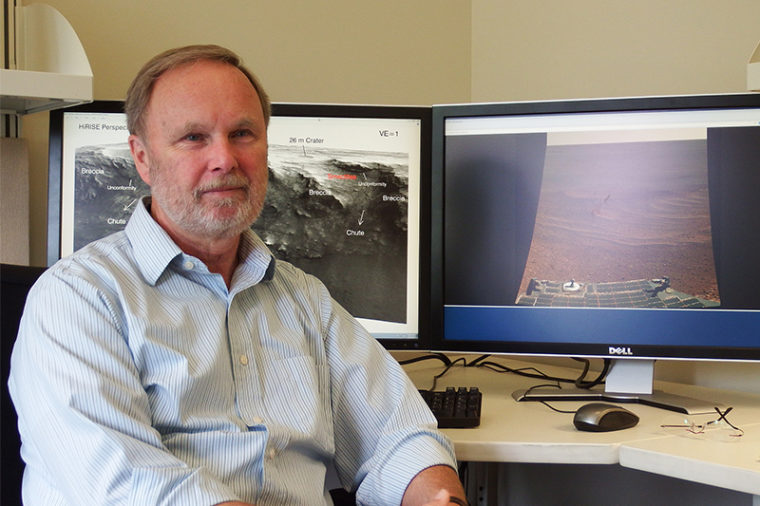NASA announced during a June 7 news conference that the Curiosity Rover mission found signs of organic materials on Mars dating back about 3.5 billion years. “The findings demonstrate that the planet was both warm and wet, and that it preserved organics,” according to Raymond Arvidson, a NASA Mars science researcher and the James S. McDonnell Distinguished University Professor in Arts & Sciences at Washington University in St. Louis.
This could be a big deal.
“The sustained presence of liquid water is one component of what defines an environment that would have been conducive to supporting life,” Arvidson said.
“Previous evidence for long-lived lakes has now been complemented by the crucially important discovery of what are conclusively organic compounds present in the ancient lake beds examined by Curiosity,” Arvidson said. It is not clear, he said, whether or not the molecules are “biotic or abiotic,” that is, whether they are the result of the processes of organisms that were living somewhere else, but wound up on Mars
“Another key point is that the compounds have been preserved for billions of years, despite the harsh Martian environment and associated ionizing radiation,” Arvidson said.
“If other conditions were favorable, and if life did start and evolve early in Martian history, the organic biosignatures would be preserved,” he said.
Arvidson is the deputy principal investigator for the highly successful Mars Exploration Rovers (Spirit and Opportunity), and he has been instrumental in developing and implementing both orbital and landed missions to the planets. He is a science team member and mobility specialist for the Mars Science Laboratory Curiosity Rover that has been exploring Mars since August 2012.
